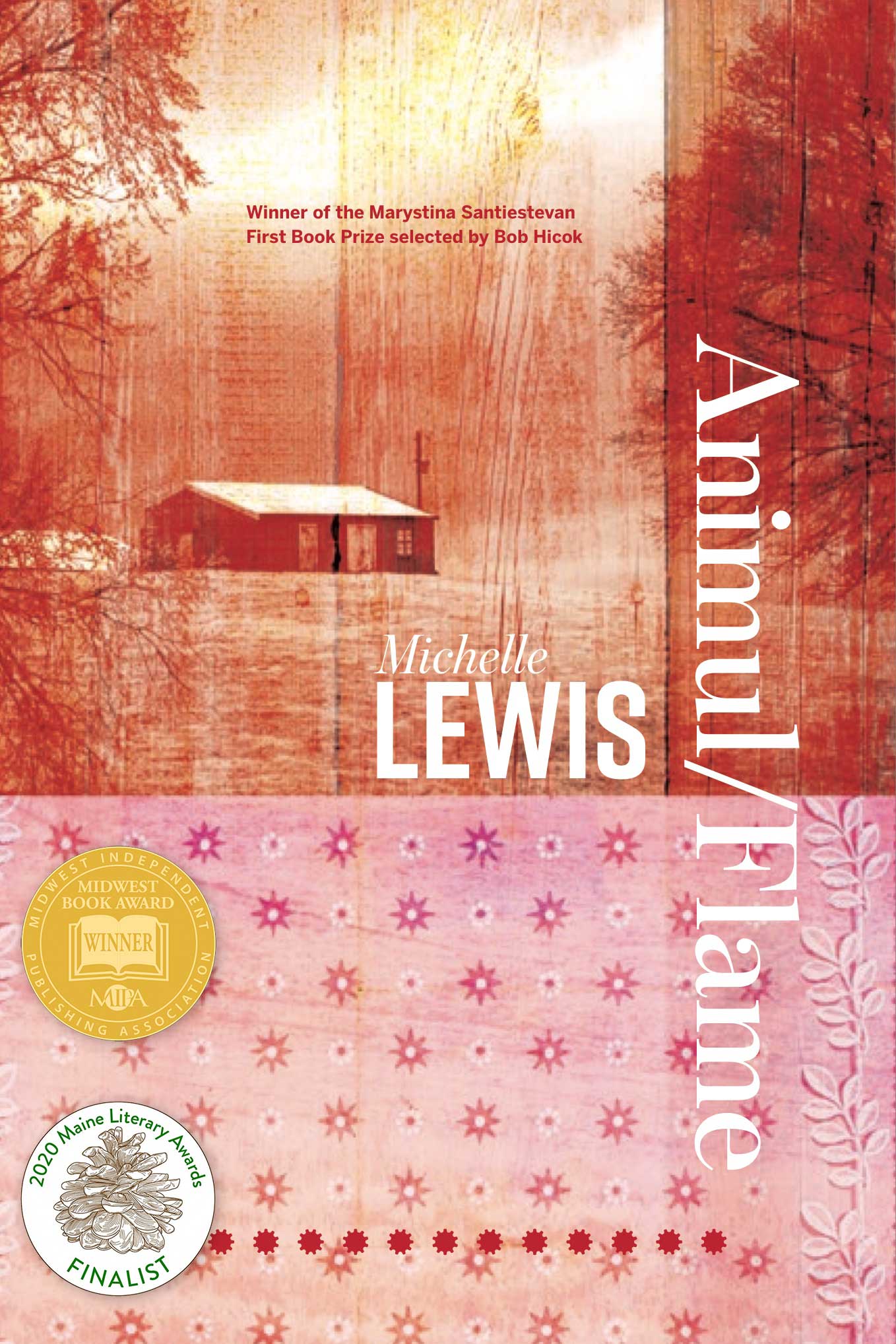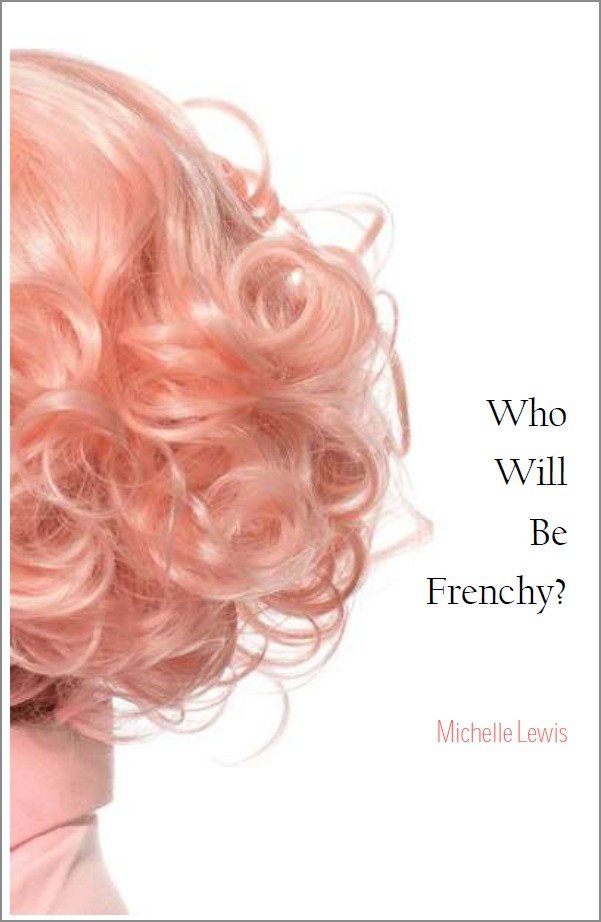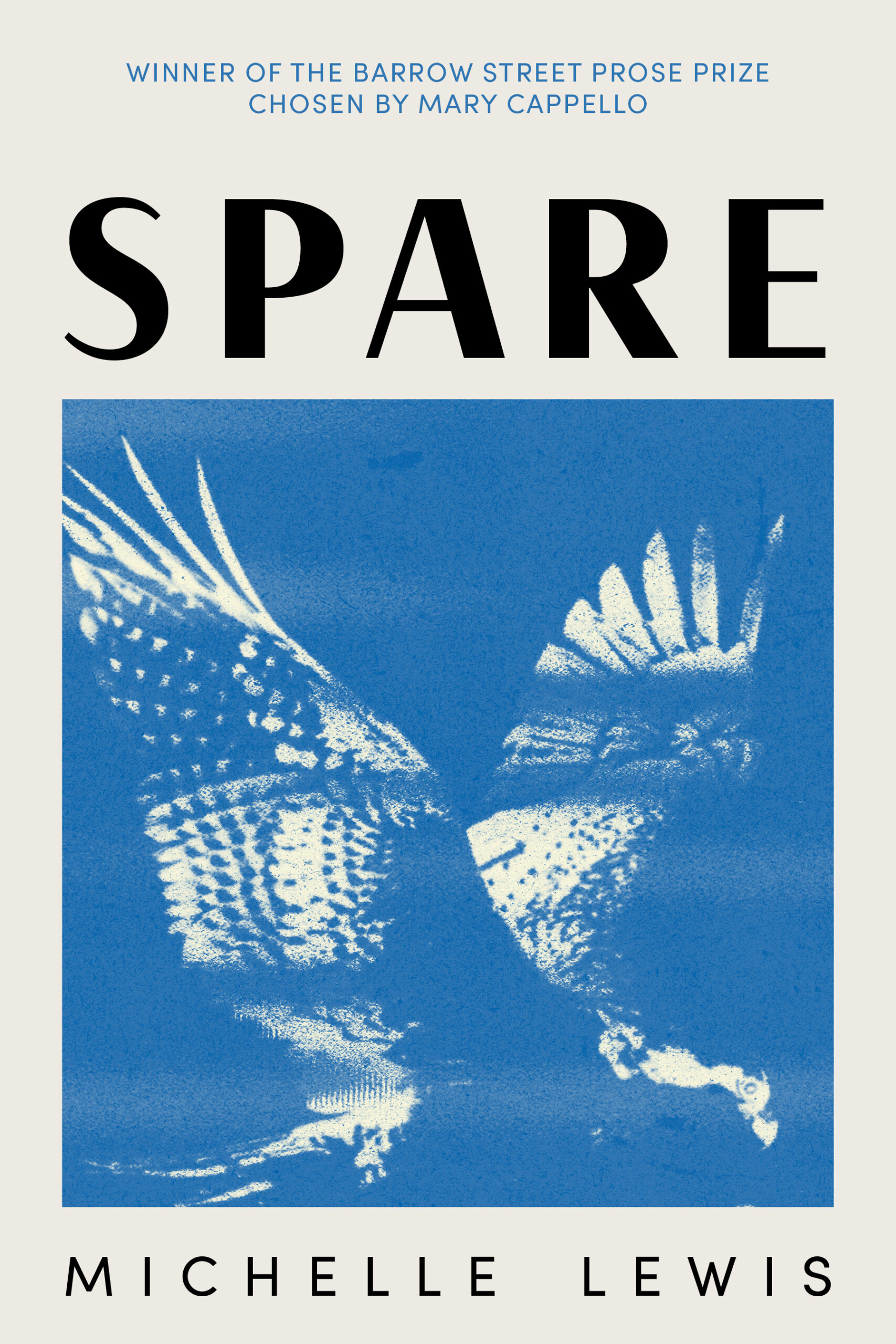Books
Spare
Winner of the 2023 Barrow Street Prose Prize
Chosen by Mary Capello
Available on April 15, 2025
I read Michelle Lewis’ Spare with a kind of awe and fascination for its arrival at the pared down and essential, its achievement of the hardest-thing-of-all in prose: the ability, and willingness, to cut through the dross and gift the reader the things we look for in great poetry. Breath. Space. Uncommon voice. Distillation. The play of meaning within a single term. How much can you “do without”? When “the bottom falls out,” what are you left with? How do you live? Spare traces a family’s, town’s, and region’s generations-long poverty and the violence of systems bent on naturalizing hardship. If no one is spared, Michelle Lewis arrives, at least, to write the truths back into history, to listen and to tell, in a prose that promises in its careful tracings to do no further harm.
— Mary Cappello
Read an excerpt from Permafrost Magazine >>

Winner of the 2018 Marystina Santiestevan First Book Prize
Animul/Flame
From Conduit Books & Ephemera chosen by Bob Hicok.
- Finalist, 2018 Inlandia Institute/Hillary Gravendyk Prize
- Finalist, 2018 Marsh Hawk Poetry Press Prize
- Semi-finalist, 2017 Ahsahta Press Sawtooth Poetry Prize
- Finalist, 2017 Emily Dickinson First Book competition awarded by the Poetry Foundation
- Semi-finalist, 2017 Perugia Press Prize, an award for the best first or second book of poetry by a woman
This is the book that wouldn’t let go of me. I’d return to it intending to read a part and find I couldn’t divide it from itself, that I had to finish each time. While the poems connect and speak to each other, they serve less to tell a story than enact a life, to move through violence and menace and mystery in a search for a language of survival, a way of touching memories and events without succumbing to them again. […] This is a book that devours.
—Bob Hicok, judge of the Marystina Stantiestevan First Book Prize
From Perugia Press:
“[Animul/Flame] feels like a fable. [Michelle] has created her own vocabulary […]. [and she is] in control of her voice, sensibility, and craft. She is the kind of writer you trust to take you to a foreign country…. Taut, inventive use of language—rooted in place and time. [It’s] gritty, violent, risky.”

From dancing girl press & studio (2016)
Who Will Be Frenchy?
Corpus Rap
People (for some reason) don’t like to talk about their bodies any more than they like to talk about David Gordon Green, even if he’s their Heidegger. But then my ‘ready to hand’ is more ‘walk up to and fuck over’. You gonna eat that? You know the time lapse footage from day to night to day? How I crave a thigh gap while waiting for that triangoli I just ordered? I’ll keep up my end of the bargain: we can talk about hermeneutics in a melancholy landscape. Whatever it takes. Now tell me what you think of my supple, original ass.
Praise for The Desire Line
Published by Moon Pie Press
The elation I feel when a new poet begins speaking in this ancient and ever-new conversation — and this new poet is truly ingenious, and furthermore, has learned to bring weight to bear upon each and every word, line, stanza, indeed, the gestalt of an entire poem — such an experience is a homecoming for me. I feel again the excitement I first felt when the first poem of my existence spoke to me. Michelle Lewis is that important. Her imaginative capacity, her acutely-observed psychological states, her encoded passion, her clear vision of exactly how her aesthetic commitments must play themselves out in each poem, her sense of integrity that makes each poem cohere, are a few of the qualities I see in the poems in The Desire Line. I am simply dazzled by this work, and, truth be told, envious.
— Gray Jacobik, author of Brave Disguises, professor emeritus of literature at
Eastern Connecticut State University.


